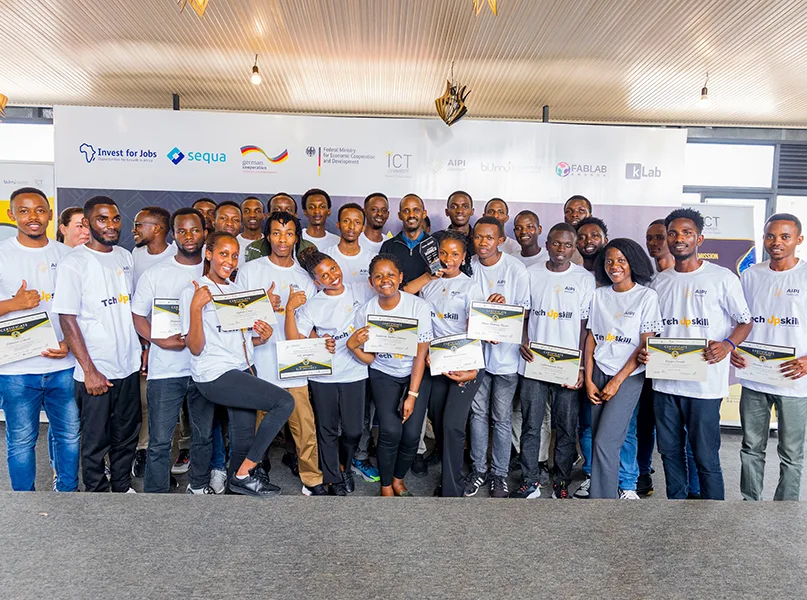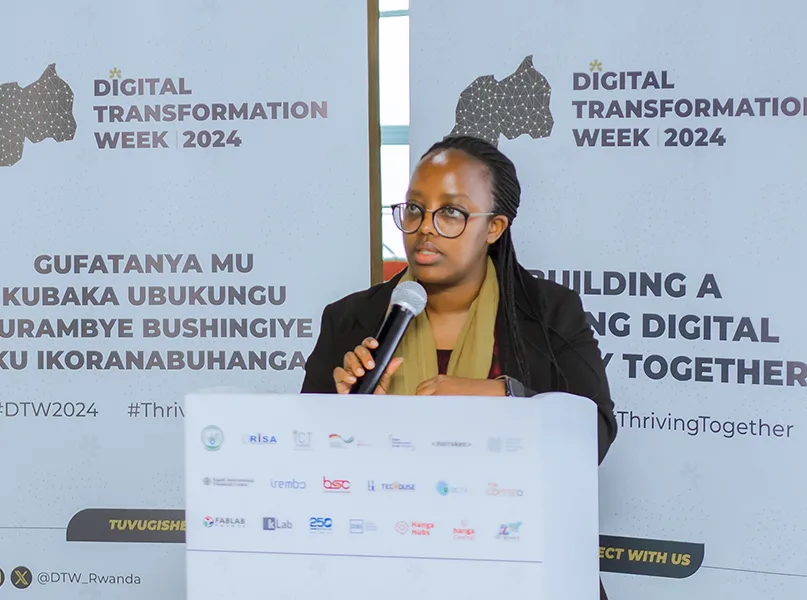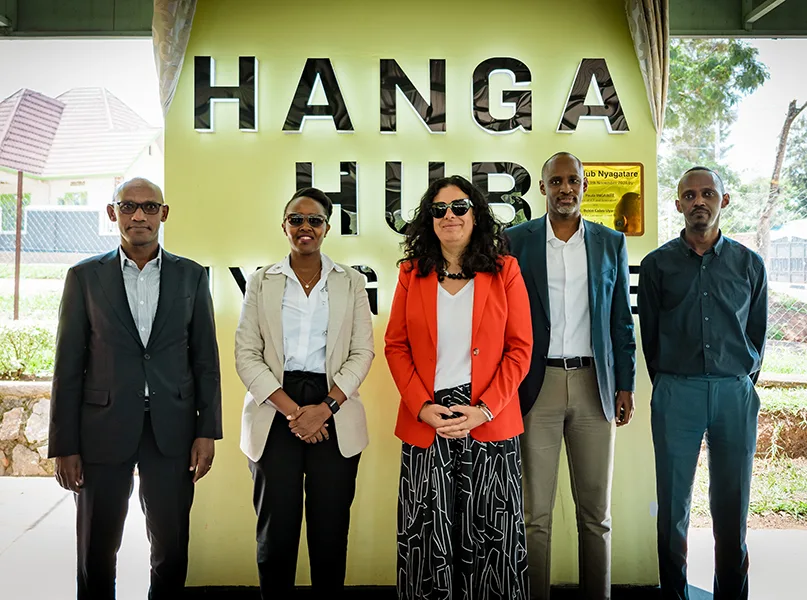Emerging as one of the most competitive economies in Africa, Rwanda is making considerable investments and strides in the ICT sector. This progress is creating employment opportunities and positioning the country to thrive in the digital sphere.
RWANDA ICT SPOTLIGHT
The ICT industry in Rwanda has seen remarkable growth and development in recent years, positioning the landlocked country as a leader in African innovation.
Indeed, Rwanda has witnessed significant investments in ICT infrastructure, such as Kigali Innovation City, which aims to create a hub for tech companies and start-ups. The multi-million-dollar project was inspired by Silicon Valley in the US; as such, it is developing a mixed-use space spanning 60 hectares in the capital city, Kigali.
The Rwandan government has also prioritised ICT as a key driver for economic advancement, resulting in favourable policies and a regulatory framework that supports technology adoption.
Furthermore, it has launched numerous initiatives to promote digital literacy and expand internet access, with a primary goal to ensure every home has internet by 2029. One of the most ambitious is the One Million Coders programme to develop skills for the ICT sector and prepare youth for future jobs. One million coders will be trained and 500,000 people will be equipped with advanced ICT skills.
As such, substantial efforts have been made to improve connectivity, including the roll-out of fibre optic networks and the Internet for All platform.

In addition, the ICT Sector Strategic Plan provides a framework for digital advancement, focusing on governance, business, and citizen livelihoods to align with Rwanda’s ambition of becoming a knowledge-based middle-income nation by 2035.
Rwanda’s ICT workforce has a diverse demographic, boasting an increasing pool of young, technology-oriented individuals trained in computer science, software engineering, and related fields. Coding boot camp initiatives and partnerships with educational institutions have also fostered a skilled workforce ready to meet the demands of the industry.
The ICT sector, with a strong emphasis on software development, FinTech, and AgriTech, is ripe with opportunities for both start-ups and established companies, demonstrating the country’s commitment to becoming a technology hub in Africa.
As the industry shows significant potential to contribute to the nation’s economic development, Rwanda is poised to embrace a promising digital future.

Q&A WITH ALEX NTALE, CEO, RWANDA ICT CHAMBER
The Rwanda ICT Chamber is facilitating and supporting the robust industry landscape with both local and international investors seeking to tap into the country’s burgeoning technology market. CEO, Alex Ntale, provides insight into expansion plans for the vibrant and evolving sector.
Firstly, could you talk us through the origins of the Rwanda ICT Chamber, its inception, and initial vision?
Alex Ntale, CEO (AN): The Rwanda ICT Chamber (ICT Chamber) began as part of the country’s private sector federation, which is the equivalent of the Chamber of Commerce in other countries. It brings different industries together and covers 10 chambers, such as manufacturing, commerce, tourism, and agriculture.
Previously, our Chamber of Services combined several companies across various sectors. In 2010, when the national strategy started to focus on building an ICT-driven economy revolving around science and technology for instance, its best efforts turned to specialisations within the Chamber of Commerce, and the companies in the Chamber of Services came together to create the ICT Chamber.
It began with a vision to capitalise on private sector development in ICT and become a leading ICT-driven society with the mission of representing member companies to build a competitive sector.

Since your establishment, how have you developed in terms of your mission and objectives?
AN: We advocate for ICT companies, focusing on policies and regulations through various initiatives, some established by us and others in partnership with different organisations, including the government.
Notable amongst them are the first innovation hub and knowledge lab, built from the vision of developing a knowledge-based economy. These have facilitated entrepreneurs and innovators and have led to a catalytic effect in the ecosystem. Today, we have between 15 and 20 tech hubs in Rwanda as members of the ICT Chamber, and we are creating programmes with them nationwide. We run about six outside Kigali and four in the capital, spread across different sub-sectors and business lines in the ICT industry. The majority of these are software-centric for industry development, whilst some are more on the engineering and computational sciences side, facilitated by our work with academic institutions.
We are building an environment that contributes to the business community and creates bridges for business-to-business (B2B) partnerships. Over the years, we have established beneficial collaborations with neighbouring countries and areas, such as Uganda, Kenya, and the West Africa region, and even work in nations as far-flung as Japan and Sweden, which have helped our ICT sector and digital economy.
We are seeing an increase in exposure and revenue generated by the industry, with member companies’ products or services distributed throughout Africa, North America, and Europe. Additionally, we see outsourced work from these regions, including Asia, North America, and Europe, as they seek to manage their companies. These connections have proven beneficial to growth and are largely influenced by a conducive environment that instils confidence in investors, ensuring their money is safe.

How is the ICT Chamber navigating the industry’s most exciting and challenging aspects?
AN: Unfortunately, the exciting part resulted from the COVID-19 pandemic, which drove most organisations’ digital transformation strategies. It opened many peoples’ eyes to the relevance of technology, information systems, and connectivity, which has expanded the digital economy sphere, so we are no longer constrained by typical ICT manufacturing or software development issues but rather permeating other sectors, such as the core economic sectors such as trade, agriculture, tourism etc.
For example, FinTech is now influencing various sectors, including energy and agriculture, as nearly all businesses have begun to engage in transactions. This encompasses payments, savings, investments, money transfers, and lending, which are all on the rise. The government has recently launched a FinTech strategy and policy with an ambitious five-year goal, comprising attracting over USD$200 million to the sector, creating between 200 and 300 new companies, and generating 3,500 job opportunities in FinTech. This is exciting because we are already witnessing a positive response from investors, indicating their confidence in the market.

Regulators are also gaining clearer guidance on the legal instruments needed for effective oversight. The Rwanda Capital Markets Authority is currently consulting on regulations concerning tokenisation and other essential assets, which previously lacked clarity. However, the situation is improving, and other regulatory bodies are beginning to align with this progress. As a result, we are witnessing increased activity in the FinTech sector.
The challenges we have faced include a lack of clarity and direction, which hinders progress in the industry. Additionally, we have yet to publish the Start-up Act, which we expect will unlock many opportunities and investment flows for our start-ups, innovators, and entrepreneurs. Fortunately, this act is currently in an advanced stage of development, and through the government, we have engaged with local communities and consulted with other countries that have already established successful policies.

Are there any other key aspects of the industry you would like to highlight, such as e-commerce or skills development?
AN: Skills development is crucial for us, especially after last year’s elections, which brought a new mandate emphasising the creation of employment opportunities in key areas, including developing one million coders and digital citizens. Our goal is to scale up the digital economy both locally and through global opportunities. E-commerce is one area of focus, but we also see significant potential in business process outsourcing (BPO). The demand for BPO services is increasing, mainly due to advancements in AI, provided we ensure the proper empowerment and support.

Looking ahead, what are the ICT Chamber’s plans and goals for the future?
AN: We are dedicated to building and strengthening our digital economy whilst enhancing the competitiveness of our companies. Our goal is to continuously develop a pipeline of talent not only for our members but also for the entire economy. This enables innovators and entrepreneurs to thrive and contribute to the wealth of our country.
As a leading influence in this sector and the private market, we recognise that 60 percent of our population comprises youth, which presents a significant challenge. We aim to make a difference by providing skills training, fostering the creation of new businesses, and providing opportunities that enhance economic and livelihood prospects for our people.

Finally, how do you see the ICT industry developing in Rwanda over the next five years?
AN: We anticipate the growth in digitisation that escalated during the COVID-19 pandemic will now be at full scale, with no industry left behind, as we are already seeing many sectors become cashless and, therefore, more digitisation in different value chains.
Obviously, financial services is one of the most digitised sectors today, but transport is a cashless space and one of the most digitised industries. We expect this to also scale into other value chains, creating more opportunities for a digital footprint, data analytics, and access to financial services because risk management and estimations will have improved with digital systems. In the public sector, we are already seeing the government digitising more than 600 citizen services.
More participants from the private sector are joining, which means that over the next five years, the digital economy in Rwanda is expected to create a significant number of jobs. Currently, it contributes between three and five percent to GDP, but this figure is projected to grow considerably. We anticipate an increase in investments in R&D and other science-based initiatives and expect to see hundreds of thousands of jobs explicitly created in the digital space, not including those in ICT-enabled sectors. As a result, people’s lives will become increasingly dependent on technology.
RWANDA ICT CHAMBER PARTNERS






























